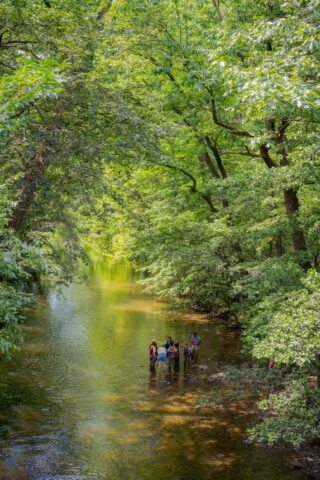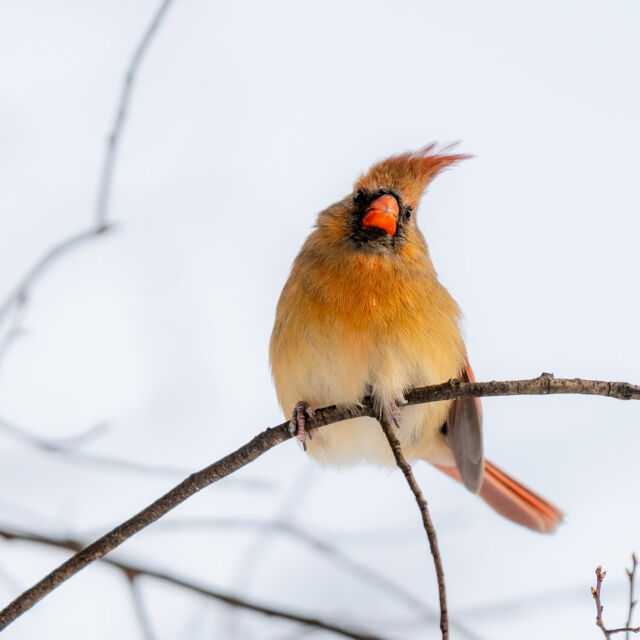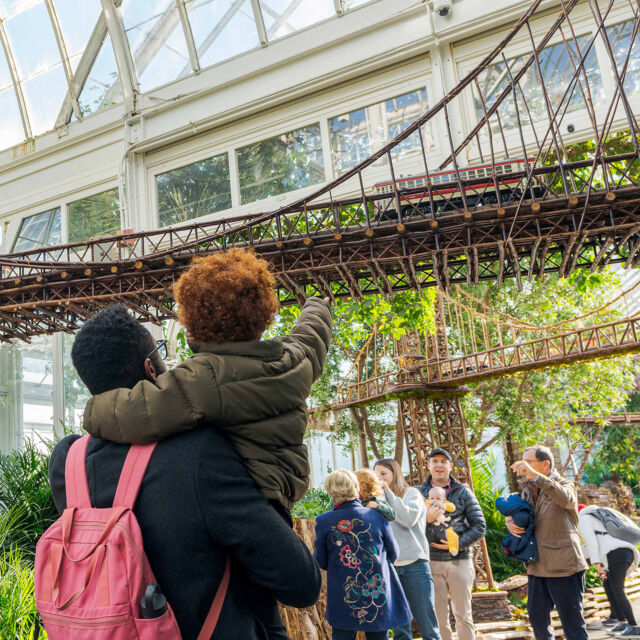Nurturing Nature Initiative: Rooted Locally, Reaching Globally
Emma Grover is the Project Manager of the Nurturing Nature Initiative.
Addressing the intertwined crises of biodiversity loss and climate change is an urgent and immediate global priority. Around the world, communities and ecosystems are facing the compounding effects of habitat degradation, species decline, and increasing climate risk. Botanical gardens, long recognized as places of beauty, education, and botanical research, are also powerful institutions for environmental action. Through their scientific expertise, deep community relationships, and diverse living collections, they serve as a springboard for practical, plant-based solutions.
Botanical gardens form a vast international network. Found on every continent except Antarctica, there are more than 3,800 institutions housing approximately 30% of all known plant species. These gardens are supported by over 60,000 technical experts and welcome hundreds of millions of visitors each year. Gardens are multifaceted institutions that both serve local communities and contribute to global environmental efforts, positioning them uniquely to drive significant positive change. 

Grounded in this collective capacity, the Nurturing Nature Initiative is a timely and ambitious effort to activate botanical gardens as agents of climate resilience, made possible through the generosity of the Gordon and Betty Moore Foundation. Through a forthcoming Action Plan, the initiative will coordinate and advance ecological restoration and community-based conservation through efforts that are rooted in local context while supporting shared global climate goals.
Advancing Local Impact
Botanical gardens are, at their core, community institutions. They steward collections of plants and fungi, often native or regionally significant, and hold deep place-based knowledge. Gardens contribute across multiple spheres, including public access and recreation, education, conservation, community engagement, and scientific research, often through a distinct local lens.
The Nurturing Nature Initiative aims to empower gardens as local centers of climate resilience, environmental education, and community well-being. It will support gardens in implementing and expanding plant-based activities within their surrounding landscapes, with a focus on native and culturally important species to strengthen ecosystem function and resilience. Priority will be placed on efforts that connect communities to local ecosystems, build capacity for stewardship, and promote inclusive access to climate education.
At The New York Botanical Garden, these goals are already underway. Since 1988, the Bronx Green-Up initiative has supported more than 300 community gardens and urban farms, fostering local leadership and creating green spaces. Building on this foundation, the Bronx River Watershed Health and Resilience Initiative unites local partners to restore habitats, improve water quality, and enhance climate resilience.
Driving Global Reach

Building on local leadership, the Nurturing Nature Initiative will mobilize botanical gardens as regional hubs for large-scale ecosystem conservation and restoration. The initiative will support garden-led efforts that extend beyond garden boundaries, focusing on the preservation and recovery of forests, grasslands, and other critical ecosystems. These ecosystems play a critical role in storing carbon, protecting biodiversity, and reducing vulnerability to climate extremes on a global scale.
Restoration and conservation are proven strategies to combat climate change and to strengthen socioecological resilience. Healthy, functioning ecosystems buffer the effects of extreme weather events, regulate water cycles, support pollinators, and maintain ecological connectivity across landscapes. By working in ecosystems in areas of highest need, Nurturing Nature will help secure long-term climate and biodiversity benefits while supporting sustainable, community-based stewardship.
At the core of this strategy is a commitment to collaboration and knowledge sharing. The initiative will invest in building institutional and community capacity, especially in the Global South, and foster respectful partnerships with Indigenous and local knowledge holders. Through the exchange of data, practices, and insights, botanical gardens will be able to expand the reach and impact of their work in ways that are scientifically sound, culturally appropriate, and globally relevant.
A Shared Future
When local institutions lead, they spark regional transformation. Plant-based projects in one region contribute to global biodiversity, climate resilience, and collective learning. NYBG’s Nurturing Nature Initiative bridges these scales—investing in people, places, and ecosystems that together shape a more resilient future.
SUBSCRIBE
Enter your email address to subscribe to this blog and receive updates on new posts.











